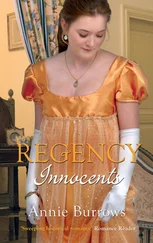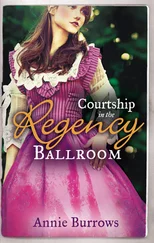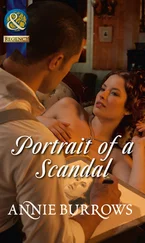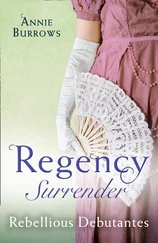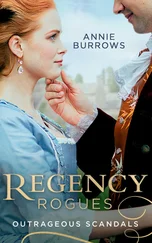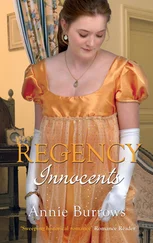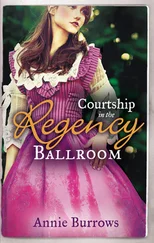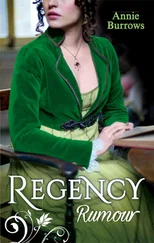‘No? But if you are not, then there are going to be a number of disappointed mamas and their daughters. The little beauties are all in competition for you.’
Roland smiled wryly. ‘I should hate to disappoint them, but there is no competition. I am not a prize to be won.’
His lordship gave a little snorty laugh of embarrassment. ‘No, of course not. But you should perhaps be careful not to give the gabble-grinders fuel for their gossip.’
‘What do you mean?’
‘My wife tells me you are often to be seen in Miss Cartwright’s company and she without a chaperon.’
Roland was furious and did not trouble to hide it ‘That, sir, is my affair.’
‘You may say so, but it won’t do, you know. Your father and hers became mortal enemies and she is a chip off the old block, riding around as if she owned the whole village. I advise you to assert yourself before she rides all over you.’
Roland was taken aback by the man’s impudence. ‘No one rides over me,’ he told him coldly.
‘Of course not. But did you know her father was a mill hand before he rose to become manager and married the mill owner’s daughter and became very rich through the trade ?’ His derogatory emphasis on the last word betrayed what he felt about that. ‘She is very high in the instep, but not one of us, Amerleigh, never one of us, not of any consequence, at all. Apart from Lady Brandon, who hardly counts, she is not accepted in polite circles. You ought to bear that in mind.’
‘What makes you suppose I have that particular lady in mind, or any lady for that matter?’ Roland reminded himself that the man was his host and it would be ill mannered to be rude, but his voice betrayed the fact that he was angry, even while holding himself in check.
‘Hold hard!’ His lordship held up both hands as if to ward off an imaginary blow. ‘I meant no disrespect. I told her ladyship it would not serve, but she would have me speak to you, to warn you…’
‘I do not need to be warned,’ Roland said icily. ‘But thank her ladyship for me.’
And with that he walked away, out of the room and through a conservatory into the garden.
It was a clear, starlit night. Behind him the orchestra was playing a waltz and he found himself thinking of Charlotte Cartwright again. Did she mind being treated like a pariah? He had heard about her own party; Mrs Biggs had been full of it. The whole Biggs family was going, even young Hannah had been invited if he would be so good as to release her from her work. Of course he had agreed, almost wishing he could go too. Even from a distance he could hear the music.
Turning back to the house, he sought out his hostess, thanked her for her hospitality and took his leave, much to her chagrin. Then he walked out into the night again and, instead of turning for home, made for the sound of merriment coming from somewhere along the Amerleigh to Scofield road.
He came upon the procession just before it reached Scofield. There was a very noisy band playing a marching tune and it was followed by a great crowd, all dressed in their Sunday best, waving flags and singing. At the gates of the mill, which stood wide open, Charlotte was waiting for them. She was wearing a skirt short enough to reveal her ankles and feet clad in half-boots, and a dark-coloured burnoose with the hood thrown back. He watched as the workers, including, he noticed, Corporal Travers and others from his estate, marched past her and into the mill, which was blazing with light.
After they had all gone in, she saw him standing on the other side of the road in his fine evening clothes and wondered why he was there. She called out to him. ‘What brings you here, my lord? Boredom or curiosity?’
He laughed. ‘Both.’
‘Would you like to join us? No one here is bored, I can promise you.’
He crossed the road and walked up to her. ‘Thank you. I should like that very much, provided my presence does not spoil anyone else’s enjoyment.’
‘Shall we ask them?’ She led the way into the schoolroom, which had been cleared of furniture. Already the musicians were playing a lively dance tune and the floor was crowded with dancers. A long table along one wall was so loaded with food there was no room to put another dish. At the end a man stood beside a barrel of beer, dispensing its contents. There was also cordial for the children. Charlotte clapped her hands and the band fell silent and everyone turned towards her.
‘Ladies and gentlemen,’ she said, an address that raised a laugh and a cheer. ‘His lordship finds the entertainment at Gilford House boring. We are not bored, are we?’
‘No!’ they yelled.
‘Shall we let him share our party?’
‘Yes!’
He knew they would have agreed to anything she suggested, considering she had provided all the food and drink and they were already merry on it. ‘Thank you,’ he said with a smile. ‘Carry on, don’t mind me.’
They took him at his word and the gaiety continued. The level of beer in the barrel went down and the loaded plates emptied and were refilled. The dancing became more boisterous and Roland and Charlotte were pulled into it, being grabbed and hauled round by mill workers. The estate workers were a little more restrained at first, but soon they, too, lost their awe of the Earl and began enjoying themselves, especially as he joined in with enthusiasm, dancing a gavotte with Mrs Biggs, while Charlotte danced with Corporal Travers, who was in uniform and very popular with both the men, who wanted to hear about the fighting, and with the women, who appreciated his rugged good looks.
In a pause in the dancing Roland found himself standing beside Charlotte again. He wondered why he had ever thought her cold. She was flushed and her eyes sparkled. She was truly enjoying herself and seemed to have forgotten they were at daggers drawn. And then she spoke and reminded him. ‘In the ordinary way of things, this is the schoolroom,’ she said. ‘The law requires me to teach the children to read and little else, but some are quite intelligent enough to go further than that, so here they are taught not only to read and write, but simple mathematics, some geography, a little history.’ She smiled. ‘It is not only for the workers, but their younger siblings.’
‘But they do not play.’
‘This is a place of work, my lord, not a playground. It is all very well for the rich to play, they do not have to earn a living, but days like today put new heart into everyone and they are not unhappy. The only time they think about it is when some well-meaning philanthropist puts ideas into their heads or, what is worse, one of their own number with a grudge makes trouble.’
Was she warning him not to meddle? he wondered. ‘Is anyone making trouble?’
‘There are always troublemakers, my lord, though none that I know of here.’
Looking round at the joyful crowd, he could well believe it. She was such a strange mixture of benevolence and hardness, it was difficult to understand her. She could shut an employee out who was a few minutes late for work and yet she could take the trouble to distribute food to those in need. Her clattering looms kept her workers chained to them like slaves and yet she wanted to educate them, even though education gave people ambition, which might in the end not be to her advantage. She appeared not to care what people thought of her, but he had seen enough of human nature to know that she was susceptible. He would be her friend if only she would let him.
At midnight, the musicians put away their instruments and the leftover food was packed into little parcels so that everyone had something to take home, then they trooped out to the common for the fireworks, singing lustily as they went. It was a wonderful display, set out by Charlotte’s mine manager, who knew a thing or two about explosives. Rocket after rocket shot skywards and exploded into the air, releasing a myriad of coloured lights. Roland, watching the faces of the children, alight with wonder, felt a tug at his heart. He would like children of his own, to nurture and love, someone to come after him, to keep his name alive, to look after Amerleigh so that it never again drifted into neglect. And to make that happen, he needed a wife. Sooner or later he would have to give some thought to it.
Читать дальше

